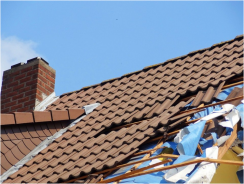
By D. A. Rupprecht
These days, I’m glad to be out of the hospitality industry…
In 2019, my wife and I closed down our short-term, self-catering accommodation business in Cape Town, South Africa. The properties – owned outright by my mother-in-law – instead took on long term tenants. We’d looked into buying them, but the price she wanted was too high, and the timing was off.
The business, which at its peak had supported several families, didn’t die because of the coronavirus. It simply became much less viable due to a long-term drought that began in 2016 and a deepening recession, from which the country still hasn’t really recovered.
Though arguably business got tighter after the introduction of Airbnb’s entry into South Africa in 2015, it didn’t kill our establishment but instead transformed our niche. We focused more on groups – and especially larger groups that stayed on for longer periods – for which Airbnb generally didn’t cater. Our biggest contracts came from US universities that sent students to attend the University of Cape Town for a semester abroad.
According to Airbnb, since its founding, two million guests stayed with hosts throughout South Africa. Within those first years, after Airbnb arrived, I did considerable research on how its platform worked, and even signed our business up as a host. I even managed to glean a few guests through them.
Yet when this pandemic hit, I couldn’t help but wonder what was happening to those property owners who depended on Airbnb to maintain their mortgages, some of whom I’d met at Airbnb functions in 2016 and later.
What Airbnb Says
Now, before anyone accuses me of schadenfreude, let me say that I feel a great deal of empathy for anyone in the short-term accommodation business these days. I understand intimately what these hosts are going through. It will take several months, perhaps even years, before the travel industry and all those associated with it – including those who host through Airbnb – return to business as usual.
Whether you’re letting out properties on a long or short-term basis, there’s so much uncertainty in the rental industry because of COVID-19. Airbnb knows travel restrictions have hit its hosts hard, which negatively affects their business model. In fact, they responded to the situation as soon as the World Health Organization (WHO) declared COVID-19 a pandemic in mid-March.
This is what they said concerning pandemic-related cancellations:
“Airbnb’s extenuating circumstances policy gives guests and hosts the option to cancel without charges if they’re impacted by things like serious injury or illness, natural disasters, travel restrictions, and other unforeseen events.”
They’ve also set up a $250 million (USD) fund to help hosts who’ve experienced cancellations as a result of the pandemic. That said, this only applies to bookings prior to 14 March 2020, and only up until 31 May. Plus, digging deeper, Airbnb’s program only covers 25% of the usual cancellation fee hosts would normally charge.
The Problem
Airbnb may have helped their hosts float a bit longer, but four months of no business is certain to affect them. In fact, when we were still in the business, I became acquainted with a number of Airbnb moguls, who used Airbnb’s business model to acquire numerous properties, most of which were leveraged with mortgages.
Like many who put all their eggs into this basket, however, their businesses are now hurting. With international and even regional travel restricted throughout much of the world, their income dried up almost overnight.
Many are having to rent these properties on a long-term basis to survive and to pay their mortgages with these lower monthly payments. This shift to longer-term rentals often means removing furnishings, as most people looking for a long-term let tend to have furniture and other stuff they’re bringing with them.
If you’re in that position, make sure to clean and disinfect the place thoroughly. You don’t want to risk the new tenants getting the virus. If these were normal times, bringing in people to clean or move would be simple and alleviate the pressure, but the pandemic and need to keep social distance complicates this.
If you do decide to bring in people to help you move or clean, wearing masks – by both you and whoever’s helping – should keep everyone safe enough. And it’s important to follow health guidelines about washing hands and keeping two meters distance as well.
The Good News
That said, there’s a bit of good news. Most countries have allowed property owners with mortgages a certain amount of grace, even for those who are renting these properties out as a business.
The CARES Act in the United States, for example, allowed people to delay mortgage payments or rents without a penalty until the last week of July 2020. Certain states have additionally put in place protections for those having trouble with their mortgages.
Though less affected by the virus, the Australian government also offers mortgage holders ways to mitigate their situations, even for those providing short term accommodation. For those with renters who are unable to pay, or who can only pay partially, the government allows this to be claimed against their taxes.
Additionally, mortgage rates are close to all-time lows worldwide, so it’s a good time to refinance in order to lock in a lower rate. That can reduce both your monthly payment and the interest you’re paying, making it easier for you to weather the COVID storm without having to sell. Even if you just got a mortgage for the property within the last year or so, it may be worth looking into refinancing.
A few months into the pandemic, lenders are also adapting. Most markets are also served by mobile notary services, and numerous companies offer a means through which you can sign mortgages digitally. This virtual mortgage process also means that you don’t have to risk your health in areas where infection rates remain high.
It’s important to understand a few basics. Generally, you want an interest rate that’s at least 50 to 75 basis points below the rate you’re currently paying. This reduced rate helps compensate for the closing costs.
Understand, however, that these savings won’t kick in immediately. Usually, it takes a few years before the savings on monthly payments outweigh refinancing costs.
So, if you’re considering selling because of the pandemic, it may not be in your best interests. Another thing to consider is that because of job losses, particularly in the United State, many lenders have raised standards that mortgage applicants must meet, including higher credit scores and lower debt requirements.
Whatever you decide to do with your Airbnb property, the travel industry will eventually return. Preparing yourself and your property for this eventuality will only put you in a better position.
Additionally, mortgage rates are close to all-time lows worldwide, so it’s a good time to refinance in order to lock in a lower rate. That can reduce both your monthly payment and the interest you’re paying, making it easier for you to weather the COVID storm without having to sell. Even if you just got a mortgage for the property within the last year or so, it may be worth looking into refinancing. Contact a mortgage broker like Mt. Pleasant refinance brokers to see what your options are.
Author Bio: Once a stressed-out property manager, D. A. Rupprecht is now an internationally-based (and only occasionally stressed-out) freelance writer who contributes to various blogs. He also occasionally writes books.











Author
Homesgofast com
Homesgofast.com is an international real estate portal and news source for Google news. Publishing international real estate, finance, homes and travel-related news and blogs for a targeted audience since 2002. Each news item is circulated to thousands of potential readers each day and is also available to the millions of people who sign up for Google news alerts. Find homes offered for sale and to rent direct from owners and some of the best real estate agents from over 35 countries